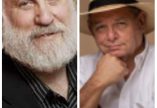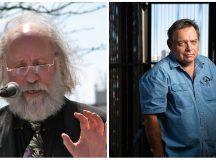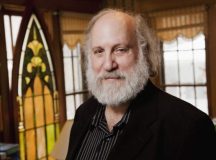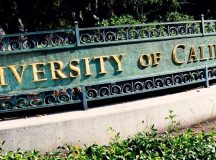A FOUNDING PANEL
On a 27 September 2024 panel recorded for YouTube, Nina Mehta, one of the co-organisers of the New York-based anti-Zionist group PARCEO, announced PARCEO’s new college curriculum on antisemitism: ‘We are all too aware of antisemitism education that isolates and exceptionalizes antisemitism and dangerously misrepresents what antisemitism is’. That enables ‘the misuse of antisemitism and charges of antisemitism directed at those fighting for justice for the Palestinian people.’
In truth, every form of prejudice and racism needs to be isolated and treated as distinctive because each has a unique history that needs to be mastered if we are to combat it. The call to blend all forms of prejudice together is rarely if ever issued against anti-Black racism. It is directed against antisemitism so to discount its long history with its special horrors.
The panel was titled ‘Challenging Antisemitism from a Framework of Collective Liberation,’ which signals the character of the cultural, political, and historical correctives PARCEO’s curriculum will provide. PARCEO is an acronym for Participatory Action Research for Education Organizing. It claims founding in 2011, though most will not have heard of it until more recently. Since this initial event, PARCEO has continued to promote itself in workshops, among them one reported at Northwestern University in April 2025. PARCEO’s website says its recent history includes organising workshops with #BarrioEd project, Swarthmore, Haverford, Bryn Mawr colleges, Esperanza and South Philadelphia High Schools, the NYC Department of Cultural Affairs, along with a class at NYU and Bank Street College.
The PARCEO panel at Northwestern was organised by the anti-Zionist Jewish Voice for Peace in opposition to the brief, historically accurate orientation video on antisemitism that the Chicago based Jewish United Fund (JUF) prepared at the request of Northwestern’s administration to meet the school’s recognised need for antisemitism awareness training. Events at Northwestern signal the possibility of an emerging struggle over who will create that training. Students were required to watch the video, not agree with it, but some objected to it anyway, along with Northwestern’s new rules for public protests. They complained that barring noisy demonstrations between midnight and 6 am, when people were sleeping, was a violation of their academic freedom.
JUF is the largest Jewish public charity in Chicago. One of us (Nelson) reviewed and approved the text of the JUF video before it was filmed. The ad hoc group objecting to the video makes it clear they consider the Jewish community’s role in creating antisemitism awareness training to be disqualifying. A rough parallel would be objecting to the NAACP creating training against anti-Black racism.
Pressure for mandatory antisemitism training has increased considerably since 10/7 and 2024’s international wave of Gaza Solidarity encampments with their calls to ‘Globalise the Intifada’ and celebrate the Hamas ‘martyrs’ eliminated during the 10/7 attack. It is not surprising to see anti-Zionists make serious efforts to pretend to answer the call and capture both the movement and the funding it would make available. We need to understand their arguments and their goals, to theorise what happens when any form of anti-racism training becomes a captured political satellite, one that has no mooring within communities it purports to defend.
Based on a careful analysis of the recording, we judge the Northwestern panel to be less guarded, hence in some ways more revealing, than the more carefully worded PARCEO website that readers can consult. While we do not have access to the PARCEO antisemitism training curriculum, its basic outline appears online. There are many web resources explaining the curriculum’s ideas.
PARCEO’s team includes a number of fierce, long-term anti-Zionists, among them Lara Kiswani and Rebecca Vilkomerson. Both are featured in a second PARCEO/Haymarket Books YouTube video, this one from September 17, 2025, ‘Pedagogies for Justice‘. Kiswani’s activism dates at least to 2014, when she famously declared that ‘bringing down Israel really will benefit everyone in the world, everyone in society, particularly the workers.’ Vilkomerson, long-time executive director of Jewish Voice for Peace, has a history of condemning LGBTQ Zionists and a record of arrests for trespassing and disorderly conduct.
Among the competitors to offer antisemitism training, Project Shema provides a clear ideological alternative to PARCEO. A nonprofit group launched in 2020 and based in Chicago, Project Shema describes itself as
a training and support organization focused on addressing contemporary antisemitism with an emphasis on how anti-Jewish ideas and implicit biases can be carried alongside conversations about Israel and Palestine. We do not offer education or advocacy on the Israeli-Palestinian conflict. However, we do help upstanders understand Jewish identity and nurture empathy for Jewish traumas and lived experiences. Built by progressive Jews, our programs focus on depolarizing difficult conversations around anti-Jewish harm to strengthen allyship for and within the Jewish community.
Since 2024, as Jewish Currents reports in an anti-Zionist commentary on its training, Project Shema has organised or co-organised at least ten events at Harvard and has run workshops at Columbia, Tufts, and the University of Oregon ). Project Shema explicitly refuses to ‘tolerate demonization or dismissal of anyone’s lived reality.’
Unlike PARCEO, Project Shema’s workshops reflect the prevailing views of the Jewish higher education community, though Jewish Currents points out that ‘Shema does not reflexively condemn the pro-Palestine protests roiling campuses as antisemitic, and makes room for some expressions of solidarity with Palestinians.’ PARCEO’s curriculum instead reflects the opinions of significant elements of the US left that have disregarded Jewish communal consensus and sought to establish themselves as experts on antisemitism.
At Northwestern University, PARCEO’s trainings fed into calls to refuse the university-sponsored antisemitism training. In the San Francisco Unified School District, PARCEO set up an alternative training because some teachers objected to the antisemitism training offered by the American Jewish Committee. Despite these controversies, the American Association of University Professors sponsored an online PARCEO training, lending its authority towards legitimisation. Among its partners, PARCEO collaborates with the far-fringe Institute for the Critical Study of Zionism, an aggressively anti-Zionist and antisemitic organization formed at UC Santa Cruz.
Lesley Williams, a PARCEO curriculum contributor featured in its videos, has mounted an explicit attack on the Shema initiative. Quoted in Jewish Currents, she dismisses Shema’s openness to Palestinian experience as a mere ‘marketing approach,’ adopted because it is ‘politically expedient.’ She adds ‘I don’t think the goal of Project Shema is about ending antisemitism. It’s about keeping people from saying anything that makes people uncomfortable, and that is the opposite of education.’ Of course, no realistic groups have the goal of actually ending antisemitism, it having outlasted any such illusions for two thousand years. Discrediting some forms of it, limiting its impact, and yes, educating people about its monstrous history and corrosive effects. That is, indeed, the proper task of antisemitism’s opponents. Williams’ ‘keeping people from saying anything that makes people uncomfortable’ references anti-Zionism and saying anything critical of the Jewish state. PARCEO’s team is persistently antagonistic to the IHRA Definition, while falsely claiming it would criminalise criticism of Israeli government policy.
UCLA history professor Robin D G Kelley, one of the curriculum’s community reviewers, moderates the 2024 inaugural panel recorded for YouTube. He emphasises that ‘Antisemitism is too often deployed to shut down movements and ideas as opposed to oppressions of many kinds. You know, ideas and movements committed to collective liberation.’ The curriculum will ‘restore antisemitism to its rightful place – fighting antisemitism as part of the broad struggle of planetary liberation.’ If that sounds rather vague, given the different struggles people face worldwide, Kelley’s list of US liberatory priorities will not help:
We all know that incidents of antisemitic violence have reached record levels and continues to rise. But so has anti-trans violence and anti-trans bills in state legislatures. We’ve seen an uptick in attacks on migrants and Black people being killed left and right. At least 42 states have passed laws prohibiting or limiting teaching of race, racism, gender, or anything considered divisive. Conservative activists are banning books…
These are all matters of urgent concern, but they need to be addressed with targeted arguments, with education about their causes and effects. Combining them into one liberatory blur undercuts the capacity for effective action. The impact of combining all the diverse struggles against prejudice into one project that erases their differences is clear: counteracting the social movement that aims to make combatting antisemitism a priority.
Kelley is followed by Lesley Williams, a librarian from Evanston, Illinois. She is Black and Jewish. Echoing arguments she has offered in Mondoweiss essays since 2017, she ramps up the hostility apparent in the first two presentations. She reminds us about such transformative events as the Tree of Life synagogue murders in Pittsburgh, then observes that ‘what troubles me about the standard ways we talk about antisemitism is the focus on these specific horrifying incidents as opposed to the tapestry of systemic racism at work every day in our society.’ She is blunt in saying that ‘I feel no more fear, no more rage, no more terror after Pittsburgh than I have felt every day as a black person in this country.’
That leads Williams to challenge Jews who supposedly benefit from ‘the power of white privilege.’ That is the standard left rhetorical strategy for discounting antisemitism, but Williams adds a more targeted accusation: ‘Is the perceived safety of people who look like you worth the continued oppression, incarceration, and murder of people who look like me?’ Certainly not. But then these are not mutually exclusive challenges. Antisemitism and racism are distinct evils with different histories. We need to combat both. Slavery is America’s foundational crime. Anti-black racism is a continuing scourge of our society. Antisemitism has never been equally corrosive for the US. But it is a different kind of illness, a different foundational resentment.
Jamil Dakwar, a human rights lawyer and director of the ACLU’s Human Rights Program, formerly with Adalah, The Legal Center for Arab Minority Rights in Israel, then makes matters still worse. He deplores ‘the attempt to deny the connections that were made during the Durban conference to combat all forms of hate and intolerance.’ The notorious 2001 Durban conference endorsed the ‘Zionism equals racism’ equation and added momentum to the anti-Zionism movement that plagues us to this day. Many will be incredulous to learn that the Durban conference could be considered a humanist triumph. In 2022, he offered Haaretz a striking observation about Israel: ‘it’s hard to find a parallel anywhere in the world for the level of day-to-day oppression’ there.
Realising, perhaps, that the politics of the panel will alienate some who might purchase PARCEO’s services, they bring two feel-good speakers on board. Early childhood educator Abby Soul offers a utopian vision of a world devoted to fairness and justice. Nyle Fort, a minister and Columbia University African American Studies professor, extolls PARCEO’s commitment ‘to make space for all people who care.’ But then Mark Tseng-Putterman, a postdoctoral fellow in Asian American Studies at University of Pennsylvania, concludes by reprising the ‘struggle against Zionism.’ The curriculum will help ‘defang this weaponization of antisemitism against these struggles for justice’; it will disempower the tradition in which antisemitism is ‘abstracted from other structures of oppression.’
The political implications of these views are evident in a Miami Herald piece that PARCEO’s co-director, Florida-based ‘community psychologist’ Donna Nevel published on 16 November 2023, just over a month after 7 October, in which she already accused Israel of genocide. Project Shema, in contrast, discourages use of the genocide label. That makes for a stark choice in choosing antisemitism awareness training.
THE THEORY AND POLITICS OF PARCEO’S CURRICULUM
PARCEO’s antisemitism training programme has its political roots in a curriculum first announced by Jewish Voice for Peace in 2016, ‘Facing the Nakba’ (FTN). According to the account provided by its founders, ‘Facing the Nakba’ was designed by a four-woman collective that began working together in 2010. Rabbi Alissa Wise, its best-known member, introduced the results on JVP’s behalf six years later, along with coauthor and Palestinian activist Lubnah Shomali. They did so in an essay titled ‘Facing the Nakba in 2016,’ that dramatises its politics with a twenty-two point manifesto. Each entry starts with ‘The reality is,’ beginning with ‘The reality is that the Palestinian displaced population is the largest and longest-standing displaced population in the world today, numbering almost 8 million.’ That number is only possible by following the UN’s unique calculation that includes the children and grandchildren of Palestinian refugees who are now citizens of other countries. In 2024 Shomali titled her speaking tour ‘The Nakba Never Ended.’
Among the essay’s other declarations, notable for 2016, is ‘The reality is that Israel is guilty of committing war crimes and crimes against humanity.’ But most important for understanding the ideological underpinnings of PARCEO’s new curriculum is its full-throated support of BDS and the ‘inalienable . . . right of Palestinian refugees and DP’s to return to their places of origin.’ As Jews worldwide understand, the Jewish state would not survive the influx of millions of returning Palestinians. In 2017, Donna Nevel, later PARCEO’s co-director, published the first of several essays promoting the FTN curriculum.
PARCEO’s 2024 antisemitism curriculum begins with a jejune review of Jewish history, offering several photographs in a very thin substitute for an adequate account. It is a familiar way to get credit for supposed sensitivity. Such efforts typically do not credit Judaism’s status as a land-based religion. Jewish history is not the trainers’ real interest. Instead, emphasis shifts to defining what antisemitism is not and ‘the ways antisemitism has been misused to serve an anti-liberatory agenda.’ The PARCEO training thus turns to political defence and exculpation.
It aims to show that many claims of antisemitism have no substance; rather, they are false and serve to promote racism. The function of a training curriculum becomes learning to distinguish false from true antisemitism. An inescapable implication is that Jews lie a lot about antisemitic racism in order to serve their communal self-interest. It is quite unlike anti-racism trainings that discuss racism towards Blacks, Hispanics, or Asians where the facticity, credibility, and traumatic effects of discrimination are givens.
The PARCEO curriculum is based on an invented binary opposition between two theories of antisemitism, one of which PARCEO disputes and the other which the group supposedly endorses. We reproduce these definitions from one of the slides that Mehta displays in her YouTube presentation:
ETERNALIST: abstract, inevitable, ‘oldest hatred’
Understands antisemitism as cyclical and transcends history. This connects to language about antisemitism as an ‘ancient prejudice,’ ‘virus,’ ‘water,’ ‘rising tide’ as natural re-occurrences.
HISTORICAL: contextual, in relation to other oppressions
Understands antisemitism as historically contextual, situated amidst interrelated conditions and struggles. It emerges in different historical periods for different reasons and in relation to other forms of oppression.
The first entry in the pair has no real-world existence. Long-term accounts of antisemitism generally combine continuity with change and metamorphosis. They describe hatred that persists for centuries but with changes in its rhetoric, character, and aims. There is no academic constituency for a model of antisemitism that treats it as eternal and unchanging. Nor does any reputable analyst suggest it is inevitable – reoccurring, persistent, certainly; inevitable, no. To credit it as the oldest hatred does not mean it is immutable; it simply testifies to an unsettling historical fact, that antisemitism has a long, varied, and persistent history.
The false dichotomy allows PARCEO to pretend that its determination to historicise antisemitism is an intervention in a disputed field. But there are no histories of antisemitism, no long-term accounts of the oldest hatred, that fail to document its radical metamorphosis. The historical changes are universally acknowledged. They include the partial replacement of religiously-based, Christian antisemitism with racialised antisemitism in the late 19th century, exploding under the Nazis, and later with antisemitism based on opposition to the Jewish state.
PARCEO insists that antisemitism’s historical interrelationships are exclusively with other forms of oppression, whereas interrelationships with competing religious belief systems often play a larger role, along with alternative national narratives and competing political agendas. PARCEO wants to claim intellectual victory over disabling simplicity while it substitutes a disabling reduction of its own. That makes it possible for PARCEO’s to discredit or endorse accounts of antisemitism based on its false distinction. It is a misleading pedagogical model.
Defining antisemitism has become an anti-Zionist sub-industry, one that attempts to deprive a massive majority of Jews of their voice and rejects their lived experiences of racism. It denies Jews the right to explain to others their encounters with hatred. Instead, antagonistic redefinition, often relying on anti-Israel academic sources, offers a means of legitimating anti-Jewish hatreds by explaining them as enemies of imperialism, colonialism, racism, genocide, and capitalism. According to these lights, discussions of antisemitism divert attention towards an over-privileged Jewish minority rather than the true issue of racism against US communities of colour.
As educational training, this attempted redefinition indulges group hatred and authorises an escape clause for discrimination based on national origin. It renders Israelis and Jews with Zionist sympathies – over nine out of ten Jews – illegitimate racist subjects well deserving boycott, sanctions, or social shunning. The definition enables violations of Titles VI and VII of the 1964 Civil Rights Act prohibiting discrimination due to religion or national origin.
The effects carry over from pedagogy to political organising, since PACEO uses the model to make all oppression interrelated and finally indistinguishable. This dehistoricises both antisemitism and other prejudices, biases, discriminatory practices, and oppressive systems. Stripping antisemitism of its historical specificities, while claiming otherwise, helps make targeting it for focused education and opposition seem less relevant and necessary. You can simply add it to climate change and pretend you have an even more noble form of resistance.
The PARCEO curriculum offers no awareness that antisemitism, like other forms of racism, sexism, or discriminatory prejudice, is not limited to one wing of the political spectrum. Some elements of the left, both historic and contemporary, manifest antisemitism, as do right-wing politics. Anti-Zionism and antisemitism have a long, conjoined history of well over a century in left politics.
PARCEO sees such overlap between antizionism and antisemitism, historical or contemporary, as a conspiracy to deny social justice. In an educational handout, it writes that confusion of the two has a purpose: ‘In fact, the agenda of white nationalists, war profiteers, and anti-Palestinian organizations has nothing to do with protecting Jewish people, and all to do with harming our intersectional movements for justice.’ This is simple blame-shifting. The classroom handout’s language was copied from a November 2023 statement issued by Jewish Voice for Peace and PARCEO as partners, a statement that sought to redirect Jewish pain, grief, and anger over the 7 October massacre into solidarity with the Palestinian cause.
TRAINING FOR SELF-COLONISATION
PARCEO co-directors Nina Mehta and Donna Nevel want to counter any claim that their organisation fosters antisemitism instead of educating against it. They write that opposition to their training workshops relies on confounding antisemitism and anti-Zionism; an essentialist view of antisemitism that inhibits historical contextualization; exceptionalism that rejects an intersectional model; and outrage that the workshop facilitators support justice for Palestinians.
Each of these arguments fails. Disagreement over the entanglement of antisemitism and anti-Zionism does not imply confusion of two terms; discussion of antisemitism within Jewish communities and scholarship overflows with historical contextualisation and comparison, which PARCEO apparently has not discovered; no responsible Jewish organisation offers anti-racism training that fails to draw parallels to other communities and their experiences; and anger is entirely justifiable when supposed anti-racism trainers endorse BDS, a contemporary version of the oldest form of social exclusion and organised racism in Western cultures.
Compounding these bad arguments is the claim that those who disagree oppose freedom and self-determination for the Palestinian people. Quite the opposite is true. Mischaracterisation, poor arguments, and endorsement of exclusionary antisemitism do nothing to support the Palestinian cause.
It is Mehta and Nevel, both of whom identify as Jews, who lack historical context and advance defensive excuses. Left politics include an irrefutable history of antisemitism. In modern history, one can begin with Karl Marx’s infamous 1844 essay ‘On the Jewish Question’ and go forward to the murder of Jewish intellectuals under Stalin or the ejection of Jews from revolutionary Algeria.
We write here as long-committed leftists who recognise this disturbing history as an identifiable stream within progressive and socialist political thought. This does not negate our left-wing political allegiances, but rather makes us wary of the invasive potential of antisemitism even within resolutely anti-racist circles. The old saw that ‘antisemitism is the privileged racism of the left’ holds unfortunate truth.
In a nuanced 2019 essay on colonialism in Israel Studies, British law professor John Strawson concludes that
Activists and academics who demand that we see the Zionist movement as a colonizing movement not only ignore the complexity of Zionism but rapidly transform the Jewish population of Israel from an oppressed people fleeing persecution and genocide into an aggressive colonial settler.
Those whose politics rest on a false accusation against half the Jewish people – i.e. those who are Israeli citizens – need better information and less bigotry. They have little standing as competent teachers on antisemitism when their politics embody false stereotypes against Jews as an invading settler population unconnected to the land.
There is a deplorable reality of messianic Jewish settlers on the West Bank, theofascist land thieves who regularly murder Palestinians. Government indifference to and complicity in their crimes has helped fuel the slander that all Israeli Jews, not just West Bank settlers, are alien invaders. Citizens in Tel Aviv differ only in degree from sneering racist ‘hilltop youth’ with unkempt peyot. The stereotype undercuts the fundamental truth that Israel is the historic homeland of the Jewish people.
Totalisation into a collective stereotype based in historical denial rationalises violence against Jews, in Israel and among its diasporic allies, as a liberation necessity. In this pseudo-logic, all Jews – except anti-Zionists – are guilty and have no legitimate complaint if they suffer ‘anti-colonial’ violence. Acceptance of anti-Jewish violence, so clear in the post-7 October rhetoric seeking to mitigate Hamas’s responsibility by pointing toward decades of conflict and occupation, has manifested itself in statements from JVP and other anti-Zionist groups (https://jewishmajority.org/10-things-to-know%3A-jvp; https://www.thecrimson.com/article/2023/10/10/psc-statement-backlash/).
The task of liberational political education then becomes that of identifying Zionism as the origin of all area violence, the basis of all guilt. As ideology and praxis, such education alleges that Zionism is defined by offences of colonialism, apartheid, and genocide. Where in the classic religious version it was sinful Jewish unbelievers who subverted a just order in the world, in this nominally secular version it is Zionists who are the modernised subjects of antisemitism. ‘Nominally secular’ applies because the contemporary formulation resonates with a deep cultural identification in Western religious cultures of Jews as an evil force.
This perspective, common to Jewish Voice for Peace and its sister PARCEO, constitutes Jewish self-colonisation. To internalise the idea that Jewish nationalism is an invasive evil, moreover, taking it to be unlike Palestinian nationalism, absorbs and transmits the historic demonisation of Jews. Unlike other peoples, Jews have no right to a national identity. Antisemitism can then become a principled opposition to an illegitimate claim to national identity. A negative category is really a virtue. This justifies classroom indoctrination that disallows presentation of competing views.
Albert Memmi refers to this condition as internalised inferiority. He writes in The Colonizer and the Colonized, ‘The most serious blow suffered by the colonised is being removed from history and the community.’ PARCEO operates from this colonised position, one where Jews demonstrate their separation from their community. Such a separation, now called ‘collective liberation,’ rejects Jewish collectivity.
Anti-Zionist political instruction, as embodied in PARCEO training that emphasises what antisemitism is not, validates self-colonised subjects who actively oppose Jewish nationalism. It rejects Jewish particularism in order to facilitate intersectional solidarity, an act of communal self-abnegation demanded of no other group. Can one imagine anti-racism training that calls for rejection of the particularism of Black Lives Matter? Justice for a specific group, Jews, faces condemnation as privilege and disappears beneath a false universalism of ‘collective liberation.’
Antisemitism-abuse arguments rely on denying antisemitism’s nature, as in ‘what you see is not antisemitism but legitimate protest.’ Free speech and public protest do not preclude antisemitic speech content. Such arguments preclude examination of the rhetorical racism they embody, avoiding close scrutiny of argumentative terms and constructions. While there is certainly right-wing misuse of antisemitism charges, this does not negate the existence of campus antisemitism that has received overwhelming documentation.
A question that gets avoided is – how and why did the US left provide right-wing opponents with such a powerful hammer for attack? There are a range of possible answers, such as ideas about alignment with Third World liberation causes versus perceived developed world sponsorship of Israel and Zionism; misbegotten notions of Jewish influence and power; encouragement of Jews ‘assimilating into the revolution’; disparagement of Jewishness as social atavism; and more. One question that the US left needs to confront is ‘why are we facing constant accusations of antisemitism?’ The denial strategy, embodied in PARCEO training and JVP statements, is sheer avoidance and dishonesty.
It is not a university’s job to resolve the dispute between competing Israeli and Palestinian nationalisms. It is a university’s job to guarantee that open discussion and freedom of speech are honored. If nothing else, that is the only way to accommodate students with differing opinions. Training organisations seeking to authorise vilification or discrimination need to find another market for their services.
We are facing antisemitism training with discriminatory ideas that would earn scorn from an overwhelming majority of US Jews and Jewish organisations. Instead of combatting antisemitism, PARCEO authorises antisemitism in the form of BDS and stigmatises Jewish nationalism. This is the voice of a tiny minority, beneath one percent of the US Jewish population, that pretends to represent a legitimate and widespread Jewish community response to antisemitism. We categorically dismiss that pretence.




































